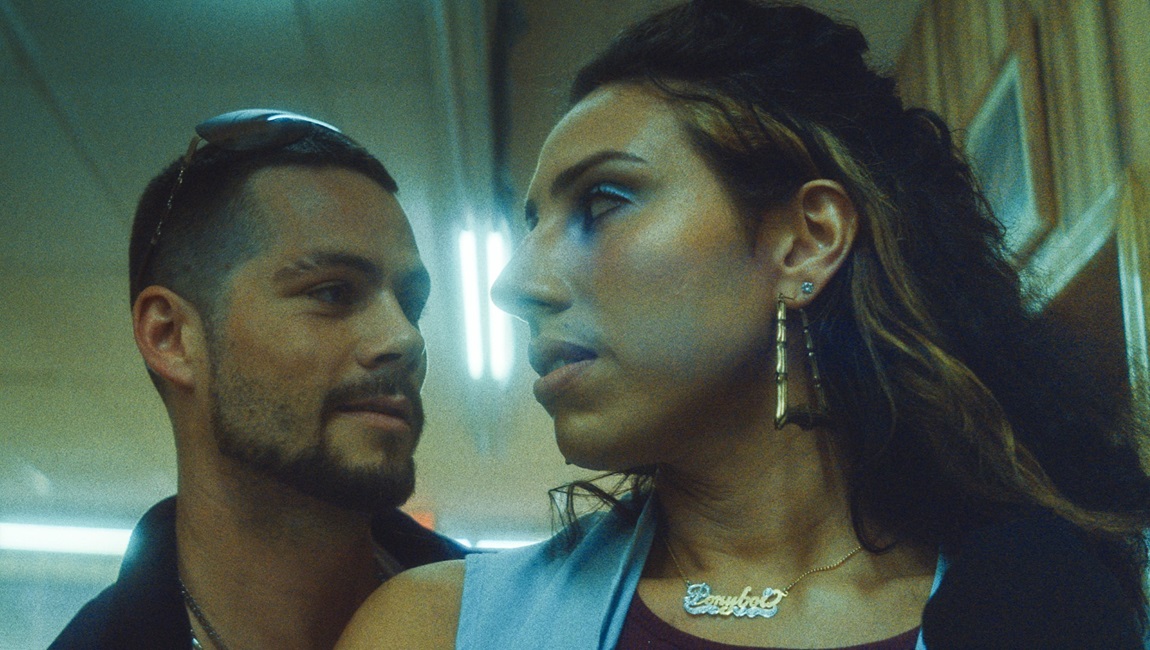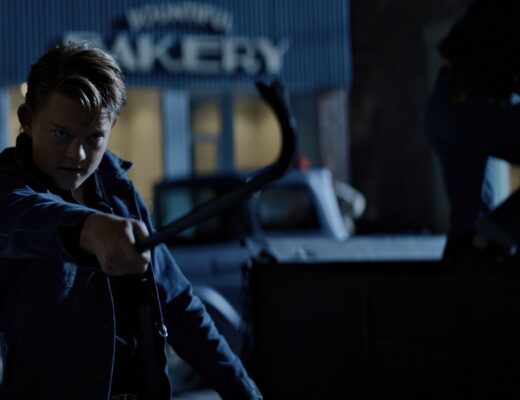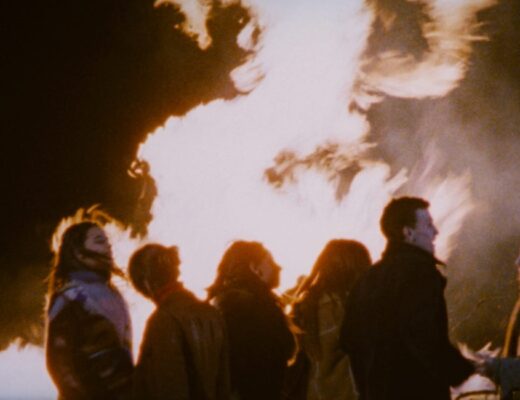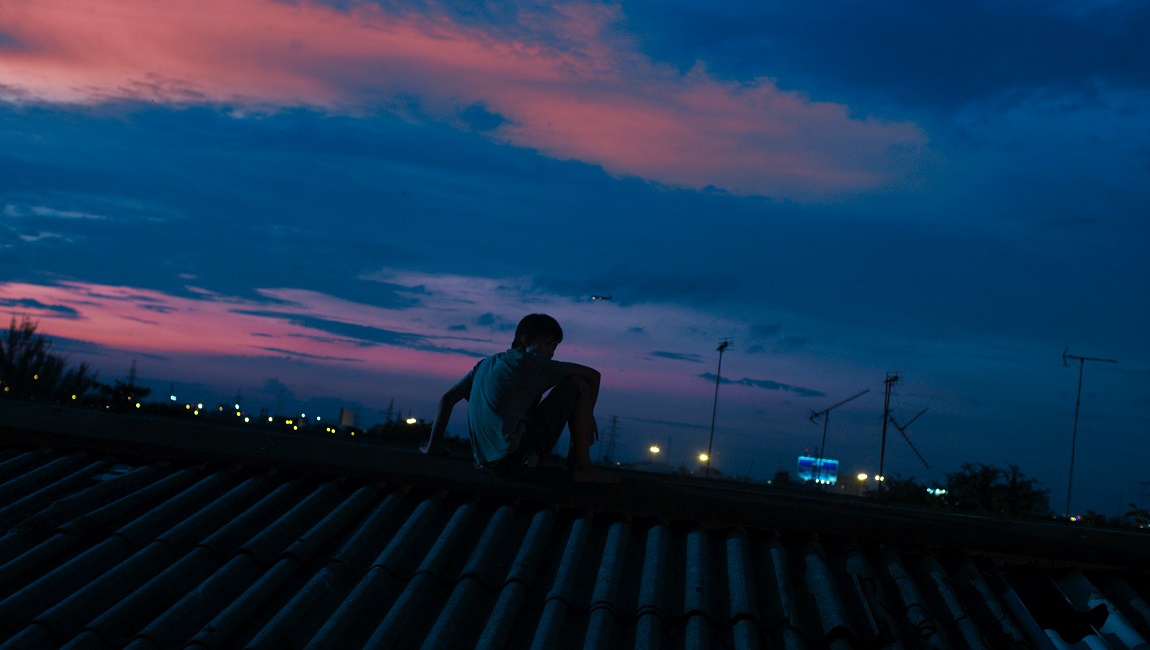As a Latinx intersex sex worker, Ponyboi (River Gallo) is well-versed in the indignity of precarity: a simple exchange with a pharmacist, for instance, involves a careful negotiation between proving his existence and being resigned to the casual cruelty of strangers. So begins Esteban Arango’s Ponyboi, a film which is keen on exploring the anguish of queer loneliness and displacement through a mix of both comedy and crime thriller textures. For the most part, Ponyboi succeeds in carving a heartfelt portrayal of intersex queer identity. But Gallo’s screenplay is too invested in expository gestures, and the film’s self-conscious didacticism undercuts its desire to actually deliver a provocative consideration of queerness.
Arango’s film follows the titular Ponyboi as he works at a laundromat owned by his drug-dealer and pimp, Vinny (Dylan O’ Brien). Vinny’s pregnant girlfriend, Angel (Victoria Pedretti), is Ponyboi’s best friend, but unbeknownst to her, he is also sleeping with Vinny. In a space that is defined by betrayal, survival, and transaction, Ponyboi’s relationship with Angel is surprisingly characterized by genuine warmth: the two exchange friendship bracelets on Valentine’s Day, and their camaraderie anchors Ponyboi’s otherwise messy collision of genres. The brief references to news detailing the transit strike, while slightly contrived, root Ponyboi’s friendship with Angel in a shared understanding of precarity and gender oppression. Another scene, between Ponyboi and his friend Charlie (Indya Moore), also sees an honest conversation that details the cruelty of cis-heterosexual society — but the film’s reliance on conveying these themes through pure exposition renders Charlie’s character underdeveloped and disjointed from the narrative.
The film’s action begins when Ponyboi’s client (Stephen Moscatello) dies after taking a new strain of meth created by Vinny, which sends Ponyboi on the run from both his pimp and the mob. Adding to Ponyboi’s luck are the endless calls from his mother, who wants Ponyboi to visit his estranged and dying father. The story of the prodigal child is familiar to queers, who are often disowned by their parents and asked to bear the burden of forgiveness — a problem that haunts Ponyboi as he attempts to dodge everybody in New Jersey. Flashbacks to Ponyboi’s traumatic childhood also accentuates the film’s fleeting indulgence in a family drama, though this attempt rings a little hollow as the thrilling chase for Ponyboi takes primacy during the film’s runtime.
One memory recurs over and again in the film: doctors promising to make Ponyboi a “real cowboy” while his parents watch on, eager to transform Ponyboi into their desired image of masculinity. Strangely enough, Ponyboi does meet a cowboy named Bruce (Murray Bartlett) during his journey, but the reality of Barlett’s character is placed into question, as their interactions are conveyed through dreamy and hazy lighting which renders Bruce a fantastical — or aspirational — figure in Ponyboi’s imagination. After all, it’s Bruce who tells Ponyboi what he desperately wants to hear: “I like that you are different.” It’s here that Ponyboi cuts through its own weary didacticism, as the quintessential image of white hetero-masculinity is subtly transformed into something softer and more fluid — a sincere wish, perhaps, that our given identities don’t always have to be our future.







